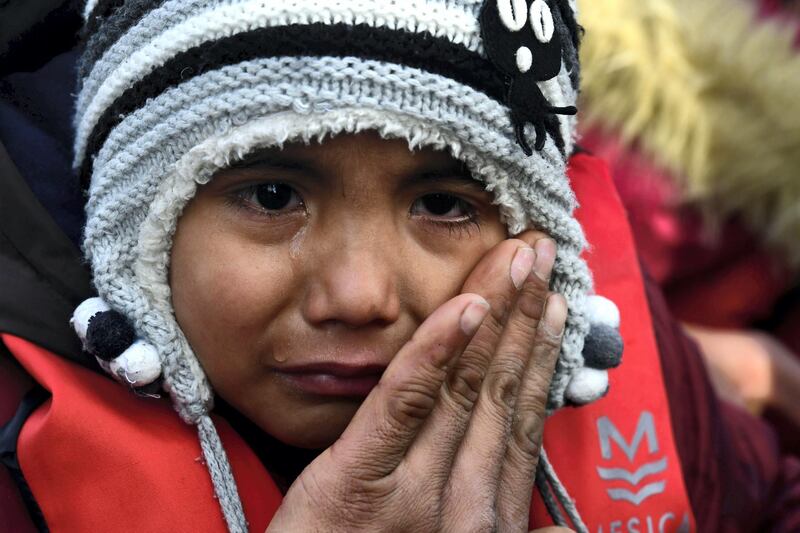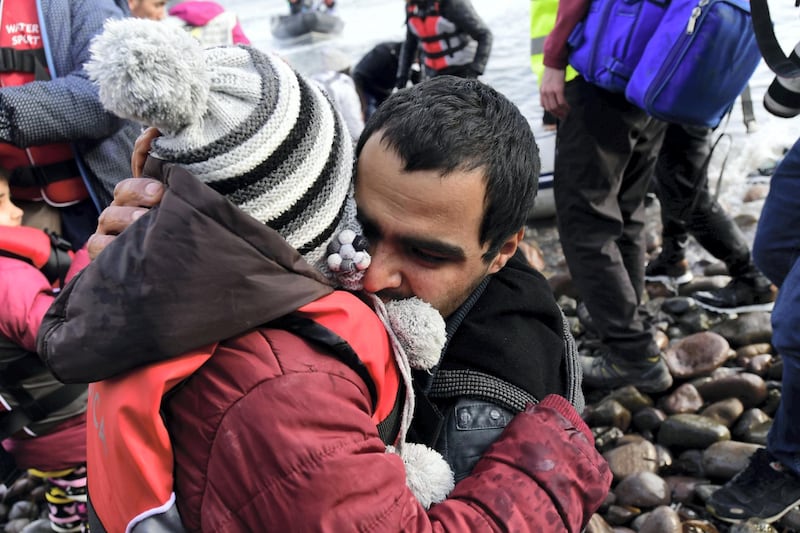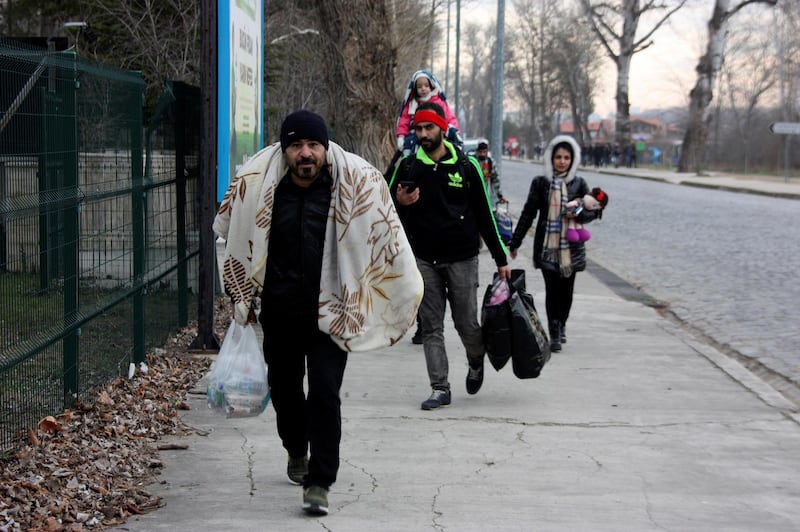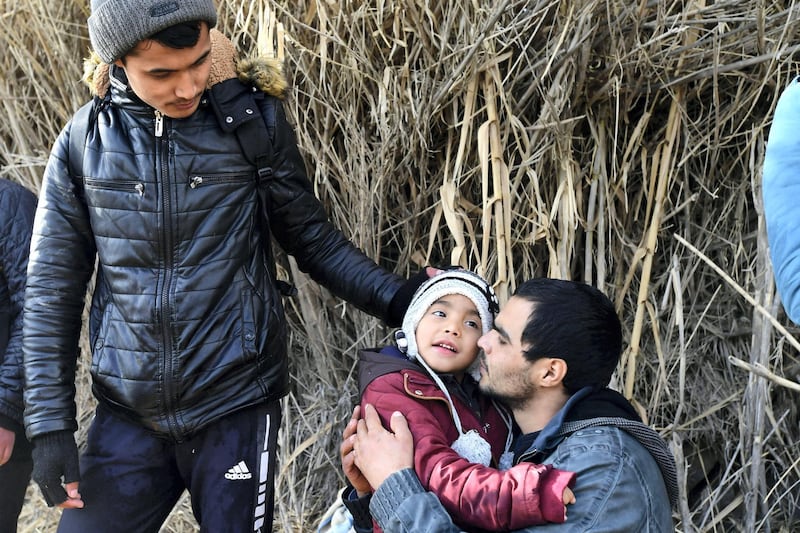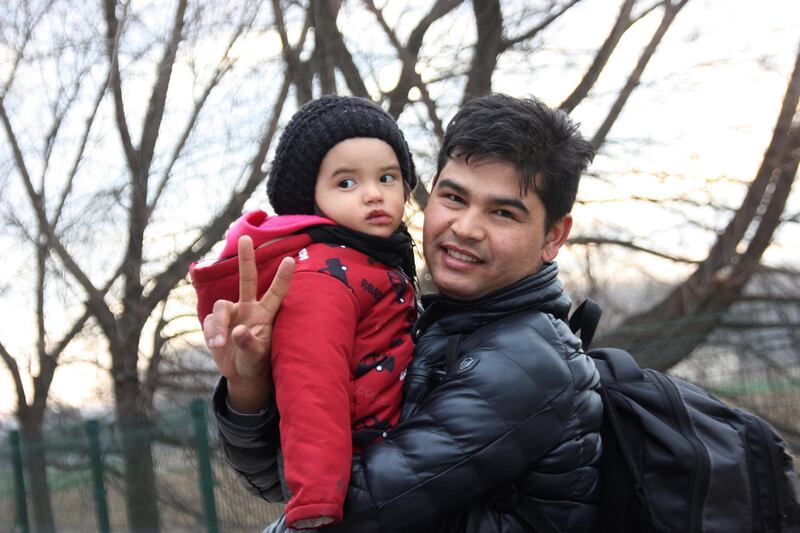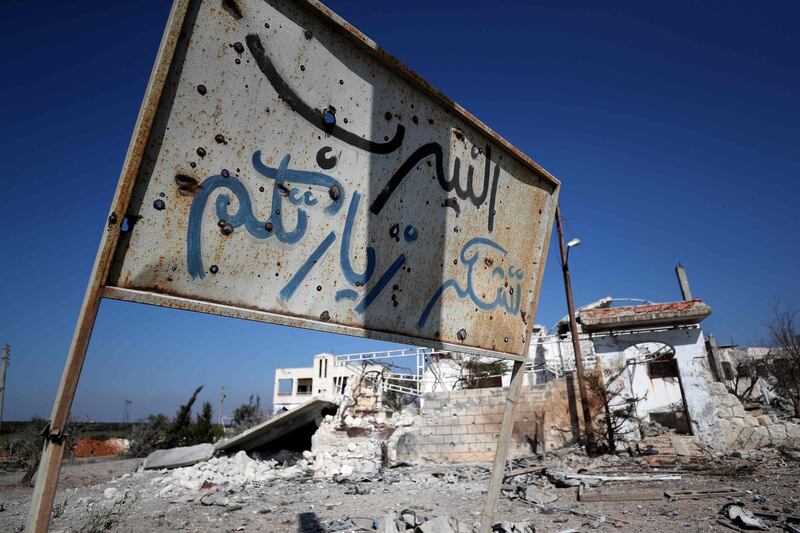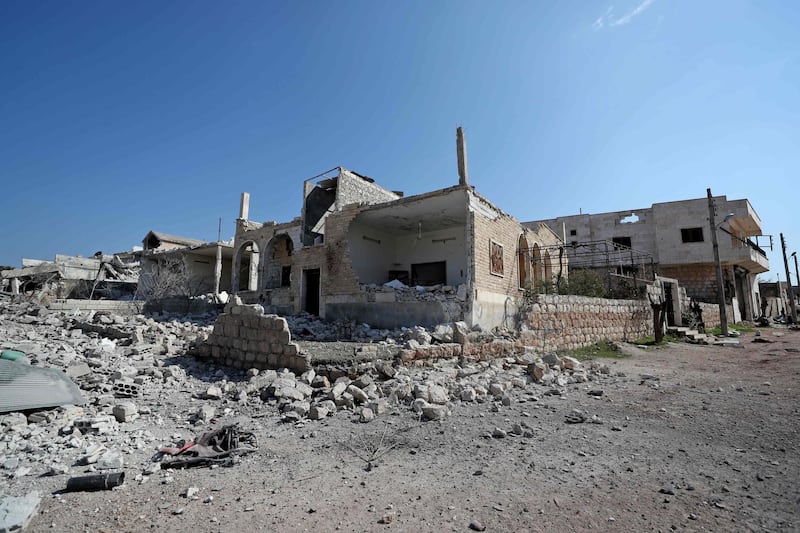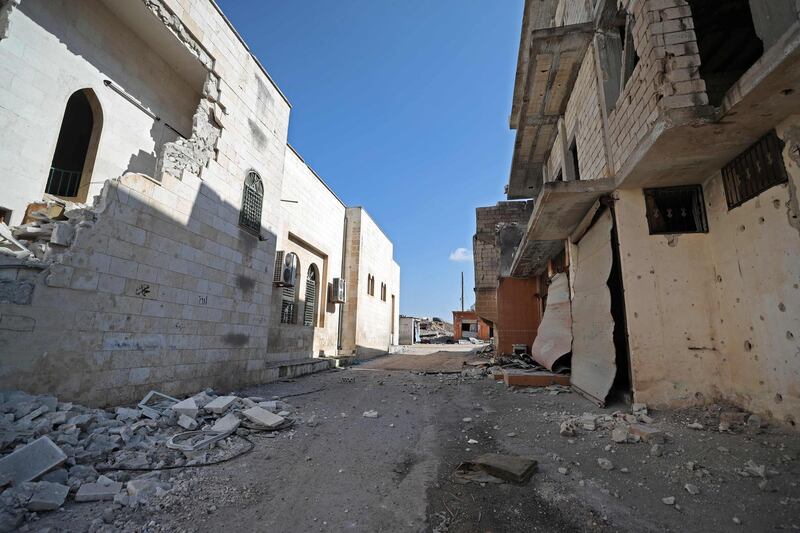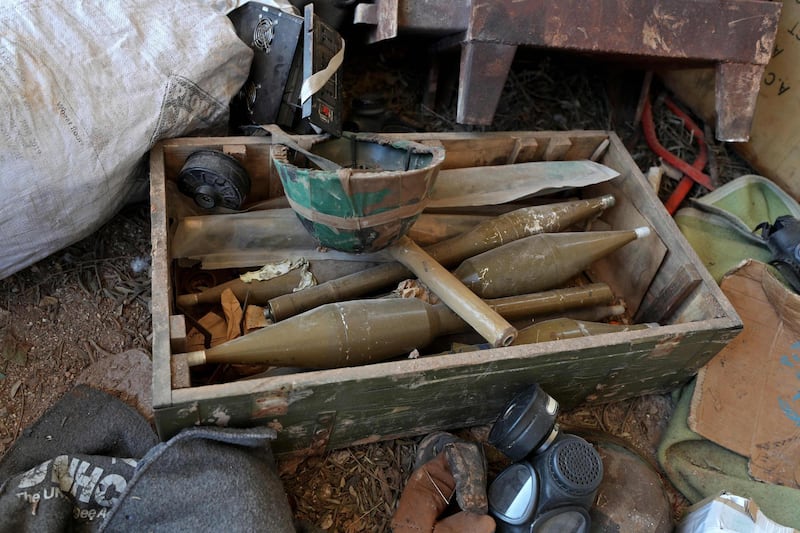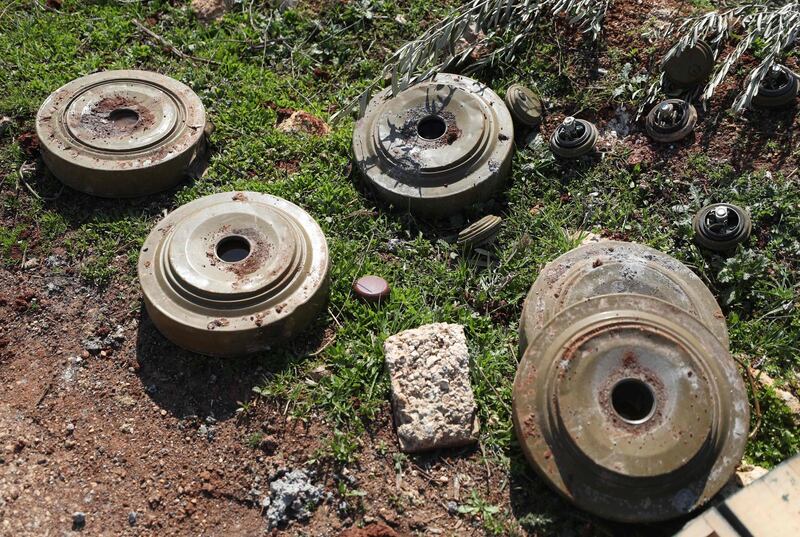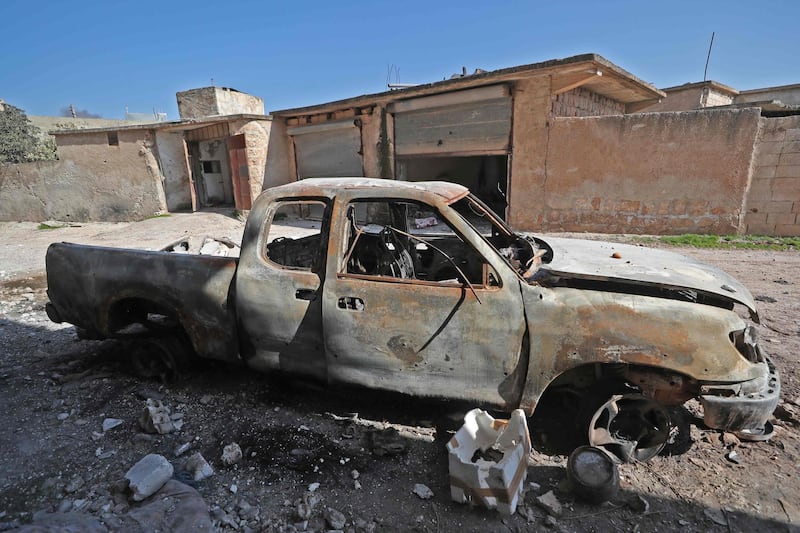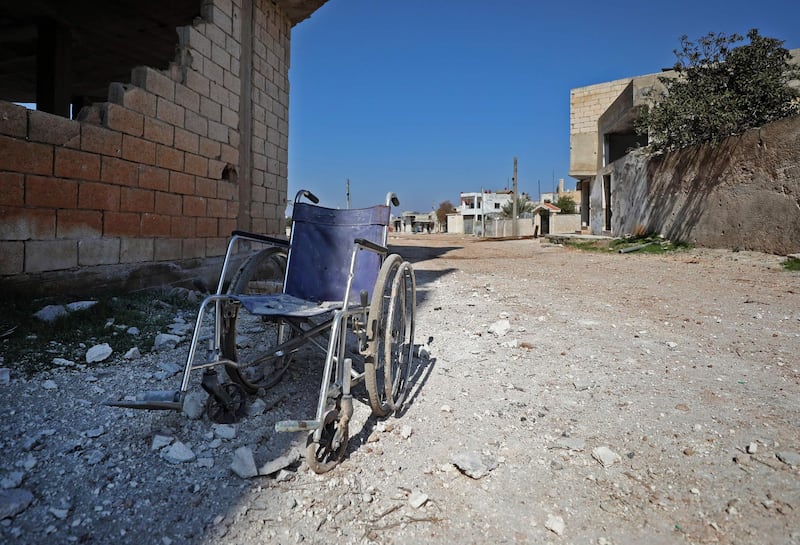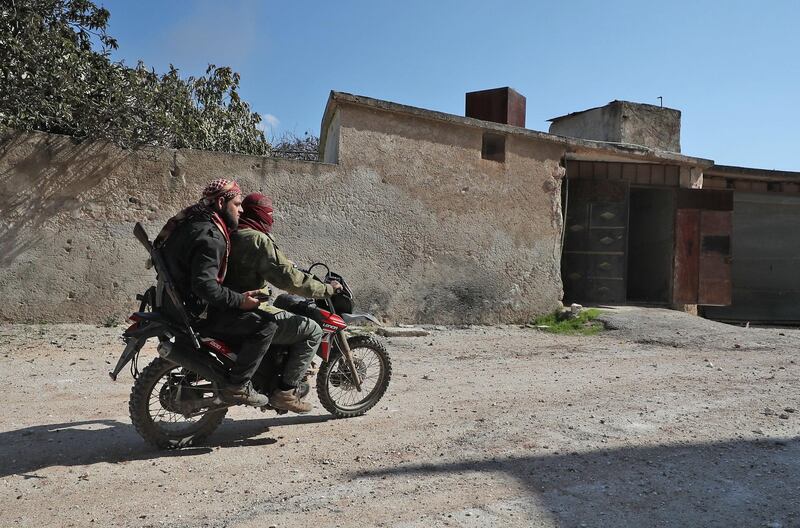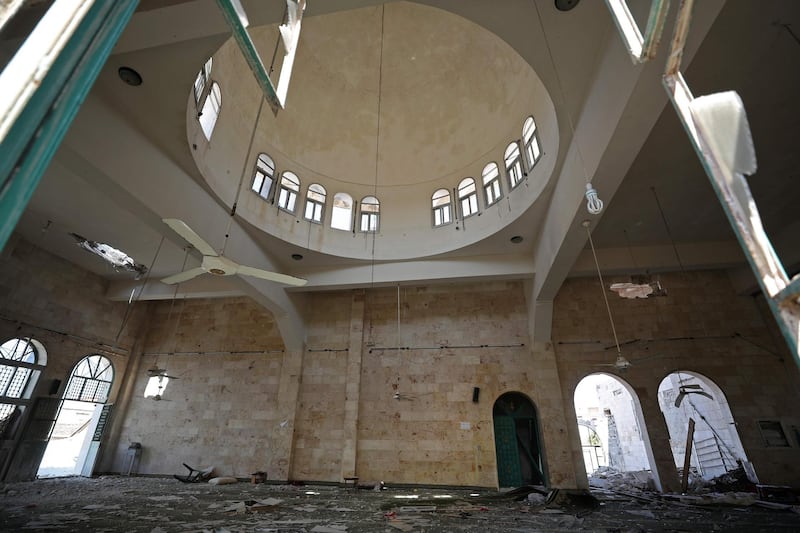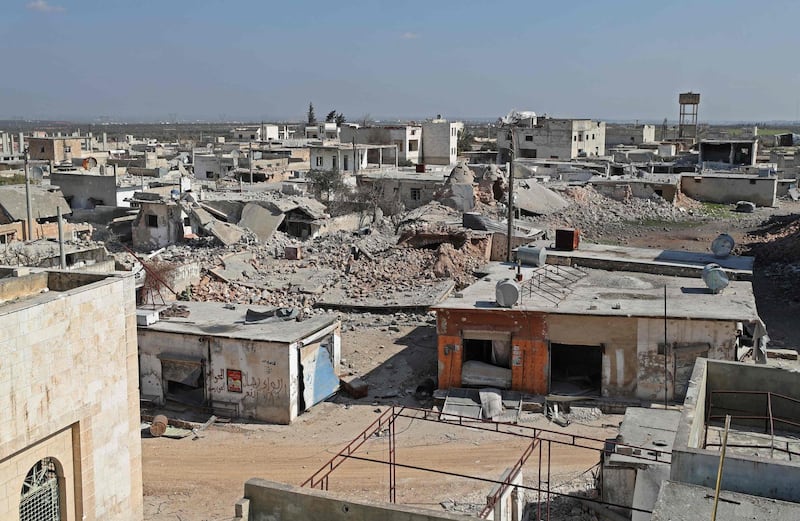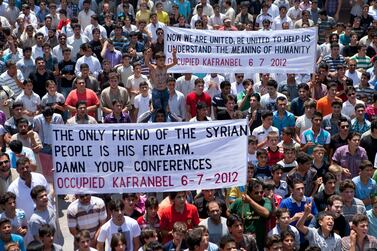Turkey will no longer prevent Syrian refugees from travelling to Europe, a senior Turkish official said on Friday, following an air strike by Syrian government forces overnight that killed 33 Turkish soldiers in Syria's northwestern Idlib region.
Turkey has retaliated by attacking government forces. Government communications director, Fahrettin Altun, said that "all known" Syrian government targets were being fired on by Turkish air and land support units.
In anticipation of the imminent arrival of refugees following this latest assault on Idlib, Turkish police, coastguard and border security officials have been ordered to stand down on refugees' land and sea crossings towards Europe, the Turkish official told Reuters.
"We have decided, effectively immediately, not to stop Syrian refugees from reaching Europe by land or sea," said the official, who requested anonymity.
"All refugees, including Syrians, are now welcome to cross into the European Union."
On Friday, hundreds of migrants gathered at Turkey's borders with Greece and Bulgaria in the hopes of crossing into Europe to escape the ongoing violence.
Turkey's Demiroren news agency said there were around 300 migrants, including women and children in the group, which began heading towards the borders between the two European Union countries and Turkey’s Edirne province at around midnight.
Bulgaria said it was beefing up security on its border with Turkey to counter a possible migrant influx, deploying “army units, national guard and border police staff,” Prime Minister Boyko Borissov said after a Cabinet meeting. “There is a real threat” of a new migrant wave from Turkey, he said.
Migrants also gathered on the western Turkish coastal district of Ayvacik in Canakkale province with the aim of travelling by boat to Greece’s Lesbos island, the agency reported.
Greek police and military border patrols have been deployed on the Greek side to prevent anyone trying to cross without authorisation, an official said.
Aid agencies have expressed concern that refugees fleeing the fighting will face further danger if they embark on the dangerous sea crossing to Greece.
“We have seen media reports that Turkey has told its security officials to stand down on refugee border crossings. If true, the move could provide a lifeline for the hundreds of thousands of desperate Syrians fleeing a brutal and condemnable Syrian and Russian offensive in Idlib. And we would urge Turkey not to impose an arbitrary deadline on those seeking to escape the Russian-Syrian kill box. We also urge Western donors to surge humanitarian assistance into Turkey to care for those in need," said Refugees International President Eric Schwartz.
"Media reports also indicate that Turkey has also decided to allow Syrian refugees to leave Turkey for Europe by land and sea. All refugees should enjoy freedom of movement, but we are also deeply concerned that those leaving Turkey will face a perilous journey across the sea to Greece—a journey that has claimed so many lives. The Greek government will need to move quickly to rescue and receive refugees that make the crossing. Greece itself is ill-prepared to receive a sudden influx of refugees—thus, it critical that the EU support Greece and fast track refugees from Greece to other EU countries where they can seek asylum,” he added.
the threat to open the way for refugees to Europe would, if executed, reverse a pledge Turkey made to the European Union in 2016 and could quickly draw Western powers into the standoff over Idlib and stalled negotiations between Ankara and Moscow.
Idlib, which is the last remaining opposition stronghold in Syria, has been under bombardment from Syrian government forces since December last year.
The air strike on Turkish troops came after the Turkish-backed opposition forces re-took the town key town of Saraqeb on Thursday, marking their first big push-back against the Syrian government offensive.
Some one million civilians have been displaced near the Turkish border since December as Russia-backed Syrian government forces seized territory from the rebel forces, marking the worst humanitarian crisis in the nine-year war.
Turkey hosts some 3.7 million Syrian refugees and has repeated that it cannot handle more.
Under the 2016 deal, the European Union has provided billions of euros in aid in return for Ankara agreeing to stem the influx of migrants into Europe.
The burden of hosting refugees "is too heavy for any single country to carry", the Turkish official told Reuters.
The attack on Thursday raised the Turkish military death toll in the region to 54 this month. Turkey has sent thousands of troops and heavy military hardware into Syria and Turkish President Recep Tayyip Erdogan has warned that Turkey would launch a full-scale offensive to repel Syrian forces unless they pulled back from Turkish observation posts in the region.
Ambassadors from the Nato military alliance are holding emergency talks on Friday at the request of Turkey in the wake of the attack.
Nato Secretary-General Jens Stoltenberg said in a statement that the talks on Friday morning would be held under Article 4 of Nato’s founding treaty, which allows any ally to request consultations if it feels its territorial integrity, political independence or security is threatened.
The US State Department said the United States was very concerned about the reported attack on Turkish soldiers. "We stand by our Nato ally Turkey and continue to call for an immediate end to this despicable offensive by the Assad regime, Russia, and Iranian-backed forces," a State Department representative said in a statement.
President Erdogan spoke with Russian President Vladimir Putin over the phone on Friday. The Kremlin said Mr Erdogan and Mr Putin discussed implementing agreements in Idlib.
Russian Foreign Minister Sergei Lavrov, speaking in Moscow, said Russia remains committed to the agreements reached by Mr Putin and his Turkish counterpart. Commenting on the deaths of the Turkish troops in Idlib, Mr Lavrov said that if the agreements between the two countries’ armies — “including sharing of accurate coordinates of the Turkish troops’ location” — had been implemented in full, “such tragedies could have been avoided.”
Russia’s Defence Ministry said the Turkish troops that came under fire in Idlib were deployed among “terrorist battle formations.” They were in the area of Behun, and according to coordinates given to Russia’s Reconciliation Center in Syria, “there were no Turkish military units in the area … and there weren’t supposed to be,” the ministry said.
The statement added that Russian air forces did not carry out airstrikes in the area, and claimed that after receiving information about Turkish casualties, “the Russian side took all the necessary measures in order for the Syrian forces to stop the fire.”
Meanwhile, two Russian frigates carrying cruise missiles have been deployed to Syria, Russian navy officials said Friday. Admiral Makarov and Admiral Grigorovich of the Black Sea Fleet are en route to the Syrian coast with Kalibr cruise missiles on board. Both warships previously took part in Russia’s offensive in Syria.
